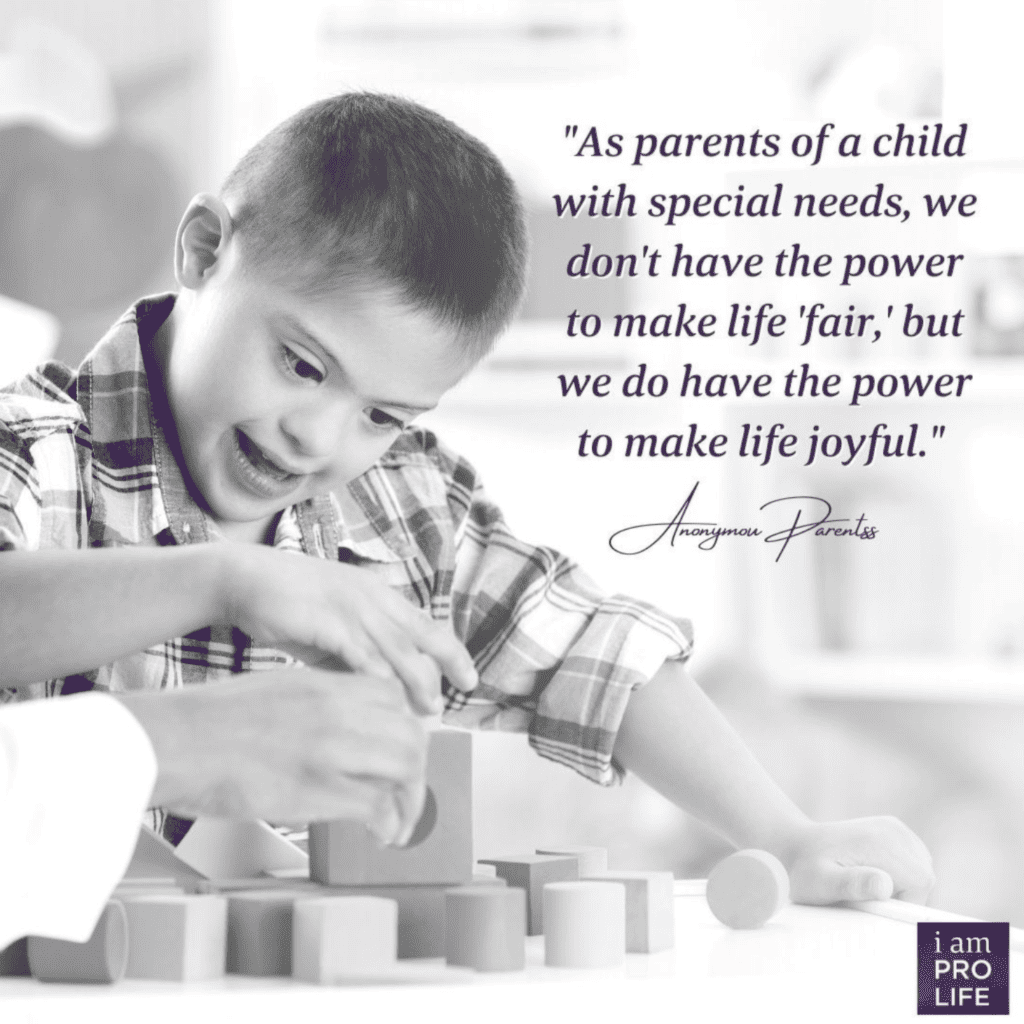In 2012, the United Nations chose to officially recognize March 21 as World Down Syndrome Day. Since then, advocates across the globe gather each year to celebrate the beauty of genetic diversity and raise awareness on behalf of those with Down syndrome. This year’s World Down Syndrome Day is especially important – discrimination through prenatal screening has been occurring at startling rates worldwide. Iceland, for example, has claimed to have nearly eradicated Down syndrome. Media sources fail to address that the country has done so at the cost of those born with genetic differences.
Prejudice in the Abortion Industry
In a country of 356,000, only one to two babies with Down syndrome are born in Iceland each year. Both late-term abortion exceptions and a government mandate to offer prenatal screenings for abnormalities play a part, resulting in nearly 100 percent of women who receive the diagnosis choosing to end their pregnancy.
The rest of the world isn’t far behind Iceland. When a child tests positive for Down syndrome, Denmark has an abortion rate of 98 percent and Britain has a rating of 90 percent. Unfortunately, the United States trails closely at 67 percent.
Prejudice within the abortion industry is becoming increasingly evident. Take the U.S. national abortion average of 18 percent for comparison; more than three times as many abortions occur in children with Down syndrome. It’s especially distressing when considering how far support for the community has come since it’s start.
Kevin Thompson on World Down Syndrome Day
The Truth about Down Syndrome
In 1866, English physician John Langdon Down first identified the common traits between particular patients with learning disabilities. However, it wasn’t until 1959 that it became known as a chromosomal condition. Down syndrome occurs in about one in 700 births, making it the most common cause of cognitive delay in children.
In fetal development, each cell’s nucleus inherits 23 pairs of gene groupings (otherwise known as chromosomes). Down syndrome is a disorder in which there is a partial or complete additional copy of one of those chromosomes, making three – or a trisomy – of the genetic code. The incorrect cell division affects the baby’s growth, which can cause physical and intellectual changes early in life. Facial characteristics common among those with Down syndrome include a flattened bridge of the nose, upward slanting eyes, a small mouth with a protruding tongue and a single crease of the palm. Those diagnosed may also experience long-lasting heart, lung and gastrointestinal defects.
According to the CDC, the average life expectancy for people with Down syndrome is near 50 years. However, the American Association on Intellectual and Developmental Disabilities has recorded individuals reaching 70 years and going strong with Down syndrome and no dementia.
Treatment progress has most notably stemmed from the Down Syndrome Consortium, a collaboration of researchers exchanging biomedical and biobehavioral advancements. Through early intervention comprised of speech, occupational and physical therapy, most people diagnosed can attend regular classes, retain jobs and even move on to higher education. With proper support, children with Down syndrome can go on to live joyful, fulfilling and productive lives.
Further Reading On Life with Down Syndrome
How Your Family Can Celebrate World Down Syndrome Day
Just as fast as bills banning abortion based on a Down syndrome diagnosis emerge, the courts reject them; though 38 percent of Americans know someone with Down syndrome, anyone can become an advocate for the community. If you’d like to celebrate the day but don’t know where to start, here are a few ways you can raise awareness.
Get Involved
In 2015, multiple organizations launched an annual Random Acts of Kindness campaign in honor of World Down Syndrome Day. The goal is to choose one to three acts of kindness, give away one of these print-outs, then share using #WDSD21. Acts can include donating a book, giving blood, bringing canned goods to a local food bank and more. Get creative with it!
Be Active
Another way to show support is to walk, run, bike, hike or swim for 3.21 miles. The National Down Syndrome Society is hosting their annual MOVE rally virtually this year (you can learn more here), or you can participate independently and raise funds through Facebook or GoFundMe. Research organizations to support that strive to advance treatment, celebrate life and educate others about World Down Syndrome Day.
Become an Advocate
Your family can also take part in #LotsOfSocks, a campaign aimed at fostering conversation around Down syndrome. The goal is to represent the community’s uniqueness by wearing mismatched or vibrant socks – anything that sparks dialogue.
If you have kids in school, check out this free education pack from the official World Down Syndrome Day website. It allows parents to teach about the day’s importance and facilitate activities for the class.
Recognizing World Down Syndrome Day can encompass many different things. You don’t have to hold personal or social connections to bless the community by raising awareness and educating yourself and others. All you have to do is continue striving for Christ’s love and celebration of the uniqueness of each individual made in His image.






















